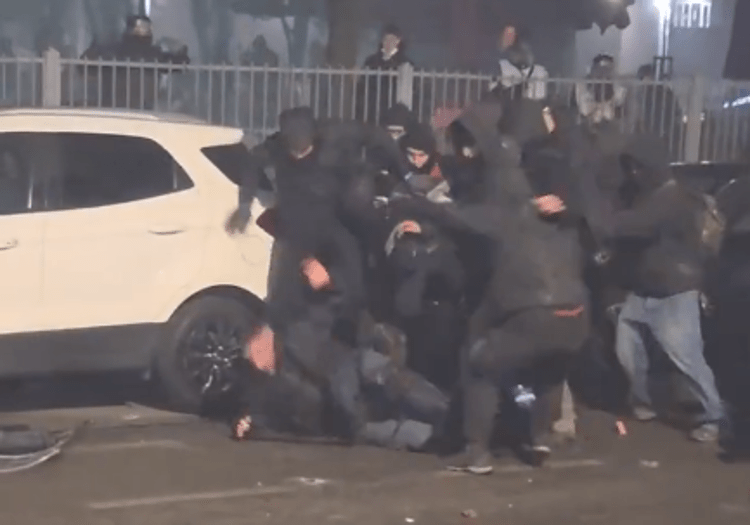
Hamas rejects extension of first phase of ceasefire, accusing Israel of blocking second phase
As the truce between Israel and Hamas expires, the Palestinian group rejects the proposed extension of the first phase, pointing the finger at Tel Aviv for blocking the decisive second phase
Gaza – March 1, 2025 – The truce between Israel and Hamas, which had brought a temporary halt to fighting in the Gaza Strip, has reached a critical turning point. Today, March 1, the first phase of the cease-fire agreement, which had received broad international support, expired without agreement being reached on an extension. Hamas rejected Israel’s proposal to extend the pause in the fighting, accusing Tel Aviv of wanting to procrastinate the start of the second phase of the cease-fire, which is crucial to the final conclusion of the conflict.
Hamas’ refusal and rising tension
This was stated by Hamas spokesman Hazem Qassem, who stressed that the Palestinian group was not willing to prolong the first phase, but rather insisted on the immediate start of the second phase. “There are no ongoing negotiations for a second phase of the cease-fire,” Qassem explained, pointing the finger at Israel, which he accused of ‘procrastination and unwillingness to fulfill its commitments’ on the agreement. According to Hamas, Israel has tried to force a continuation of the truce without making a concrete commitment on the release of hostages and the final withdrawal of Israeli forces from Gaza, central goals of the second phase of the agreement.
The international implications and Guterres’ concerns
The expiration of the first phase and Hamas’s refusal to extend it have caused concern among international leaders. UN Secretary General António Guterres urged both sides to fulfill their commitments to prevent the situation from deteriorating. In a statement issued before the expiration of the agreement, Guterres emphasized the importance of the coming days: “The parties must spare no effort to avoid a breakdown of the agreement,” he said, urging Israel and Hamas to negotiate for the second phase and to fulfill the ceasefire pledge.
Hamas accusations and the Israeli blockade of the second phase
According to sources close to Hamas, Israel is violating the agreement by refusing to discuss the second phase, which includes the release of Palestinian hostages still being held and the start of the Israeli withdrawal from Gaza. A spokesman for the group said that “Israel is trying to extend the first phase, which is a clear and intentional violation of the agreement,” stressing that the Palestinian group has demanded that the mediators force Tel Aviv to immediately start negotiations for the second phase, as agreed.
The prospects for the second phase
The final goal of the second phase of the cease-fire agreement is to end the armed conflict through the release of hostages and a final disengagement of Israeli forces from the Gaza Strip. However, the inability to engage in dialogue on these crucial points has left the situation at a stalemate, with both sides accusing each other of not abiding by the agreements reached. Israel, for its part, has yet to make any official statements regarding its position on the second phase, leaving the future of the agreement in uncertainty.
-

 International-News22 ore ago
International-News22 ore agoWhat Andrew Mountbatten-Windsor’s Arrest Means for Sarah Ferguson and Her Daughters
-

 International-News19 ore ago
International-News19 ore agoUS Supreme Court blocks Trump tariffs under IEEPA
-

 News24 ore ago
News24 ore agoPiantedosi: “Impugneremo le sentenze su Sea Watch”
-

 News7 ore ago
News7 ore agoAddio al piccolo Domenico, è morto il bimbo trapiantato con un cuore danneggiato











